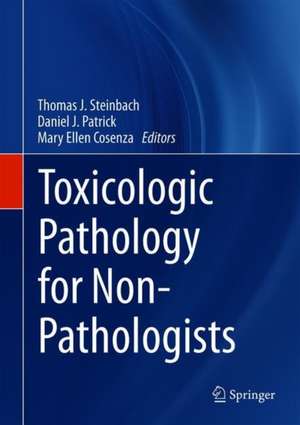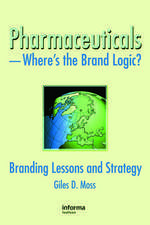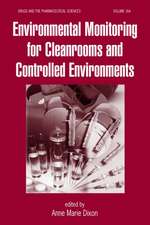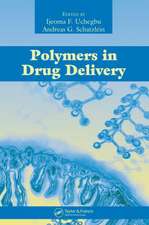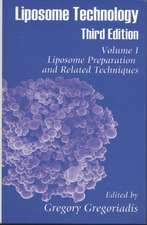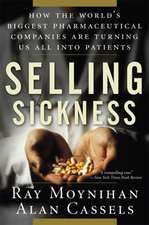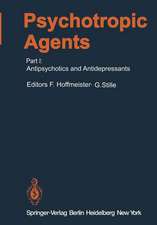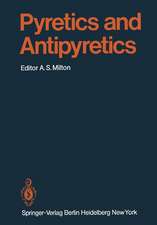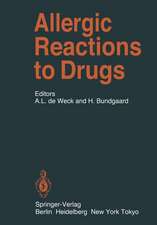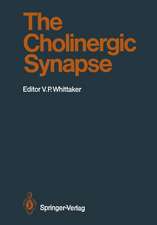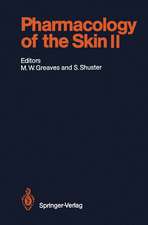Toxicologic Pathology for Non-Pathologists
Editat de Thomas J. Steinbach, Daniel J. Patrick, Mary Ellen Cosenzaen Limba Engleză Hardback – 30 oct 2019
Authoritative, practical, and comprehensive, Toxicologic Pathology for Non-Pathologists aims to help non-pathologists understand, converse in, and apply a basic understanding of pathology in their day-to-day careers.
| Toate formatele și edițiile | Preț | Express |
|---|---|---|
| Paperback (1) | 1225.96 lei 38-44 zile | |
| Springer – 30 oct 2020 | 1225.96 lei 38-44 zile | |
| Hardback (1) | 1669.36 lei 38-44 zile | |
| Springer – 30 oct 2019 | 1669.36 lei 38-44 zile |
Preț: 1669.36 lei
Preț vechi: 1757.23 lei
-5% Nou
Puncte Express: 2504
Preț estimativ în valută:
319.47€ • 346.90$ • 268.35£
319.47€ • 346.90$ • 268.35£
Carte tipărită la comandă
Livrare economică 18-24 aprilie
Preluare comenzi: 021 569.72.76
Specificații
ISBN-13: 9781493997763
ISBN-10: 1493997769
Pagini: 788
Ilustrații: X, 919 p. 228 illus., 208 illus. in color.
Dimensiuni: 178 x 254 mm
Greutate: 1.77 kg
Ediția:1st ed. 2019
Editura: Springer
Colecția Humana
Locul publicării:New York, NY, United States
ISBN-10: 1493997769
Pagini: 788
Ilustrații: X, 919 p. 228 illus., 208 illus. in color.
Dimensiuni: 178 x 254 mm
Greutate: 1.77 kg
Ediția:1st ed. 2019
Editura: Springer
Colecția Humana
Locul publicării:New York, NY, United States
Cuprins
1. Introduction to Toxicologic Pathology
George A. Parker
2. The Pathology Report, Peer Review, and Pathology Working Group
Ted A. Birkebak and Peter C. Mann
3. Routine and Special Techniques in Toxicologic Pathology Pamela Blackshear, Erica Carroll, Sasmita Mishra, Matthew Renninger, and Arun Tatiparthi
4. Pathology of the Liver and Gallbladder
Robert R. Maronpot and David E. Malarkey
5. Pathology of the Gastrointestinal Tract and Exocrine Pancreas Mark J. Hoenerhoff and Arun Kumar R. Pandiri
6. Pathology of the Urinary System
Kendall S. Frazier
7. Pathology of the Nervous System
Juliana S. Lee, Sarah D. Cramer, and Mark T. Butt
8. Pathology of the Cardiovascular System
Joshua H. Decker, Radhakrishna Sura, and Paul W. Snyder
9. Pathology of the Respiratory System
Jack R. Harkema and James G. Wagner
10. Pathology of the Lymphoid System
Tracey L. Papenfuss, Marlon C. Rebelatto, and Brad Bolon
11. Pathology of the Male and Female Reproductive System and Mammary Gland
Justin D. Vidal
12. Pathology of the Integumentary System
Kelly L. Diegel
13. Pathology of the Endocrine System
Brent E. Walling and Thomas J. Rosol
14. Pathology of Bone, Skeletal Muscle, and Tooth
Stacey Fossey, D. Greg Hall, Andrew Suttie, Martin Guillot, and Aurore Varela
15. Pathology of the Eye
Leandro B.C. Teixeira
16. Pathology of the Ear
Kenneth A. Schafer
17. Principles of Toxicologic Clinical Pathology
Adam Aulbach and Laura Cregar
18. Carcinogenicity
Paul Howroyd
19. Pathology of Juvenile Animals
Catherine A. Picut and Amera K. Remick
20. Non-Mammalian Laboratory Species: Fish, Frogs, and Beyond
Shannon Wallace and Jeff Wolf
Appendix: Fundamental Pathology Terminology Based on the Standard for the Exchange of Nonclinical Data (SEND)
George A. Parker
2. The Pathology Report, Peer Review, and Pathology Working Group
Ted A. Birkebak and Peter C. Mann
3. Routine and Special Techniques in Toxicologic Pathology Pamela Blackshear, Erica Carroll, Sasmita Mishra, Matthew Renninger, and Arun Tatiparthi
4. Pathology of the Liver and Gallbladder
Robert R. Maronpot and David E. Malarkey
5. Pathology of the Gastrointestinal Tract and Exocrine Pancreas Mark J. Hoenerhoff and Arun Kumar R. Pandiri
6. Pathology of the Urinary System
Kendall S. Frazier
7. Pathology of the Nervous System
Juliana S. Lee, Sarah D. Cramer, and Mark T. Butt
8. Pathology of the Cardiovascular System
Joshua H. Decker, Radhakrishna Sura, and Paul W. Snyder
9. Pathology of the Respiratory System
Jack R. Harkema and James G. Wagner
10. Pathology of the Lymphoid System
Tracey L. Papenfuss, Marlon C. Rebelatto, and Brad Bolon
11. Pathology of the Male and Female Reproductive System and Mammary Gland
Justin D. Vidal
12. Pathology of the Integumentary System
Kelly L. Diegel
13. Pathology of the Endocrine System
Brent E. Walling and Thomas J. Rosol
14. Pathology of Bone, Skeletal Muscle, and Tooth
Stacey Fossey, D. Greg Hall, Andrew Suttie, Martin Guillot, and Aurore Varela
15. Pathology of the Eye
Leandro B.C. Teixeira
16. Pathology of the Ear
Kenneth A. Schafer
17. Principles of Toxicologic Clinical Pathology
Adam Aulbach and Laura Cregar
18. Carcinogenicity
Paul Howroyd
19. Pathology of Juvenile Animals
Catherine A. Picut and Amera K. Remick
20. Non-Mammalian Laboratory Species: Fish, Frogs, and Beyond
Shannon Wallace and Jeff Wolf
Appendix: Fundamental Pathology Terminology Based on the Standard for the Exchange of Nonclinical Data (SEND)
Notă biografică
Thomas J. Steinbach DVM, DACVP, DABT (Experimental Pathology Laboratories, Inc., Research Triangle Park, NC, USA) and Daniel J. Patrick DVM, DACVP, DABT (Charles River Laboratories, Inc., Mattawan, MI, USA) have worked for numerous years to help organize the successful "Pathology for Non-Pathologists" short course, created with the support of the American College of Toxicology (ACT) and Society of Toxicologic Pathology (STP), upon which this book is based. Mary Ellen Cosenza PhD, DABT, RAC, ATS (MEC Regulatory & Toxicology Consulting, LLC, Moorpark, CA, USA) was an inaugural committee member of this short course and remains a highly respected member of the community at large.
Textul de pe ultima copertă
This extensive volume began as a short course primarily geared toward toxicologists who want to expand their understanding of toxicologic pathology in order to be better study directors while also proving to be of great interest to other drug development scientists and regulatory reviewers. The overall goal is to help non-pathologists understand, contextualize, and communicate the pathology data and interpretations from the study pathologist in a practical and usable format. Within the book, readers will find an overview of general pathology concepts that include fundamental vocabulary and the basics of pathophysiological processes, along with numerous chapters devoted to pathology in specific organ systems as well as topics such as biomarkers, correlation of clinical pathology endpoints (chemistry and hematology) with microscopic changes, and well-known pathology findings for classes of toxic substances.
Authoritative, practical, and comprehensive, Toxicologic Pathology for Non-Pathologists aims to help non-pathologists understand, converse in, and apply a basic understanding of pathology in their day-to-day careers.
Caracteristici
Provides practical guidance for non-pathologists in the complex field of pathology
Based on a successful course supported by the ACT and STP
Serves as a tool for aiding toxicologists to converse in the language of pathology
Based on a successful course supported by the ACT and STP
Serves as a tool for aiding toxicologists to converse in the language of pathology
